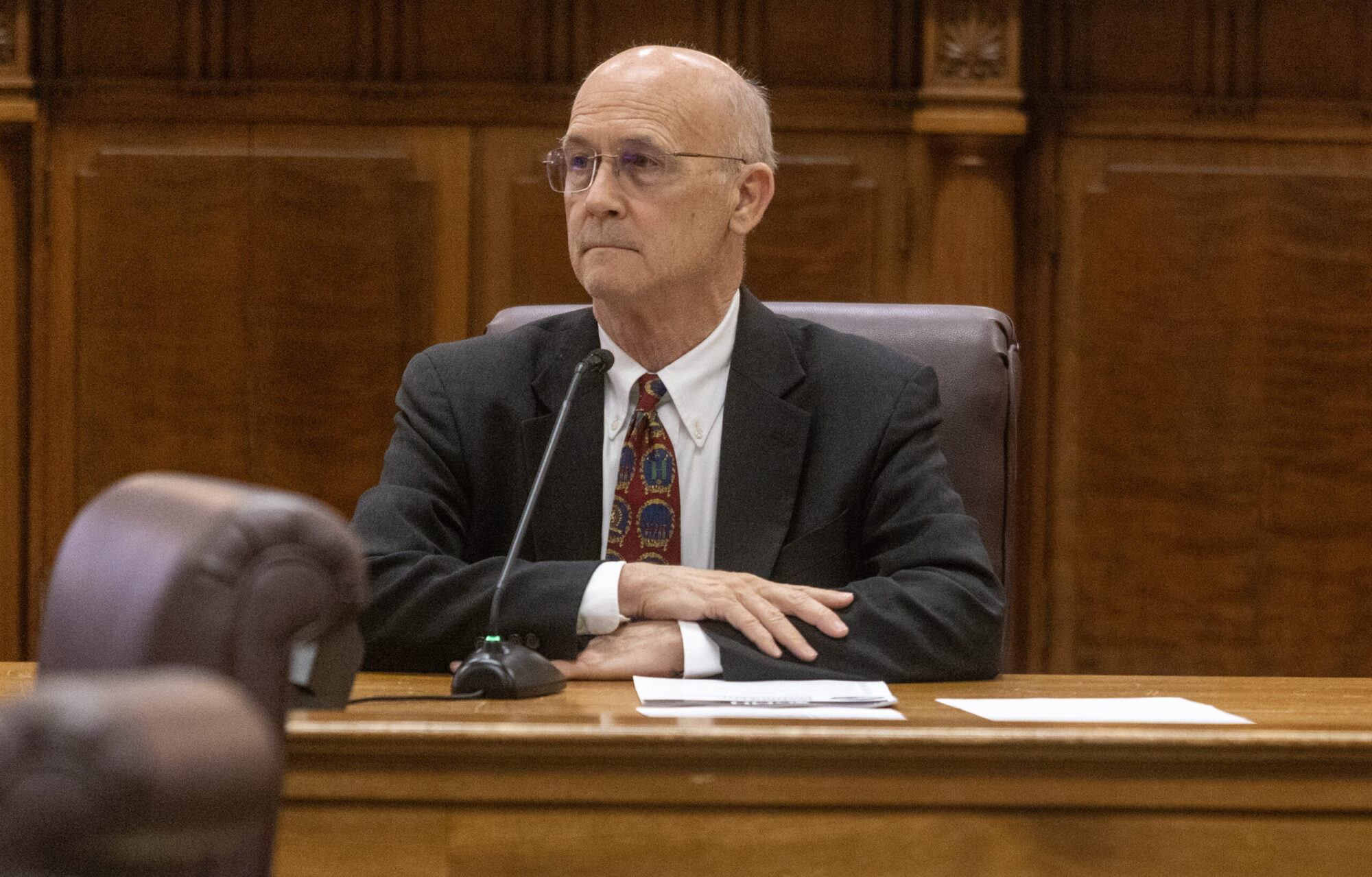
A bill cleared the Legislature Wednesday that will make it easier for medical facilities to make capital improvements and require the state’s only academic medical center to seek state approval before opening educational facilities outside of Jackson.
The legislation, which passed the House of Representatives with a vote of 113-3, will next go to Gov. Tate Reeves’ desk, where he has the option to sign it into law, allow it to become law without his signature or veto it.
The bill also mandates that the Mississippi State Department of Health study dialysis and geriatric psychiatric units in small hospitals, and uncompensated care rates in psychiatric hospitals.
These studies could lead to further reform of the state’s certificate of need law in coming years, said Chair of the Public Health and Human Services committee Rep. Sam Creekmore, R-New Albany, who authored the House’s proposal.
“To start that process, is to me, very positive,” said Creekmore, who commended both chambers of the Legislature for working together to pass the bill.
Certificate of need laws aim to lower costs and improve the quality and accessibility of health care by preventing duplication of services, but stakeholders are divided on whether or not the law accomplishes its goals.
Sen. Hob Bryan, D-Amory, spearheaded the reforms on the Senate side.
Certificate of need reform is a familiar goal for legislators in Mississippi, but few substantial changes have been made to the law since 2016.
The bill strikes a good balance of maintaining access to care and maintaining low costs of care for patients, said Richard Roberson, the President and CEO of the Mississippi Hospital Association, who applauded its changes to capital expenditure limits and effort to study other impacts of certificate of need law.
The Mississippi Healthcare Collaborative, which represents dozens of hospitals that broke away from the hospital association, did not respond to a request for comment.
During the legislative process, the Senate removed several key provisions of the bill originally approved by the House of Representatives, including those that freed certain in-demand health care services – including substance use treatment and outpatient hospital dialysis units – from being required to acquire a “certificate of need” from the state to open. The House’s version of the bill also would have streamlined the law’s appeals process.
Raising the capital expenditure threshold, or the maximum amount hospitals can spend on capital improvements without approval, will make it easier for hospitals to purchase needed medical equipment and complete renovations without first seeking approval from the state.
The bill also seeks to create a level playing field between the University of Mississippi Medical Center and other health care providers. For years, UMMC has been exempt from certificate of need requirements for facilities or equipment that is used for educational purposes.

“The University of Mississippi Medical Center is establishing facilities which look a lot like facilities that other people have and using their teaching exemption to build the facilities without a certificate of need,” said Bryan March 12, citing the new clinic UMMC opened in Ridgeland this year. UMMC plans to open another clinic in Madison County in 2026.
The final version of the bill limits UMMC’s certificate of need exemption to the area around UMMC’s main campus and the Jackson Medical Mall.
This will also encourage the medical center to continue opening health care services in Jackson, Creekmore said.
The medical center recently announced it will remove some services from the Jackson Medical Mall, including the cancer center, OB-GYN, and pain management. The plan has been criticized by some Jackson legislators.
“When they (UMMC) start moving things out of the medical mall to other areas, you know, it just kind of hurts the city of Jackson,” said Creekmore.
A spokesperson for UMMC declined to comment.
The bill also aims to maintain psychiatric services in Jackson by granting a certificate of need to Oceans Behavioral Hospital Jackson, which re-opened St. Dominic’s shuttered mental health beds last December under new management.
It will also put Oceans’ legal battle with Merit Health Central to bed. Merit Health, which operates a psychiatric unit in Jackson, sued Oceans last year, arguing that it violated the law by using a workaround to avoid a requirement during the certificate of need application process that the hospital spend at least 17% of its patient revenue on indigent and charity care.
Creekmore said he hopes the bill’s provisions to study uncompensated care rates in psychiatric hospitals will help legislators address the issue of hospitals offering limited uncompensated care in the future.
A Senate amendment on the floor that would have allowed rural emergency hospitals to open psychiatric units through a third-party entity without acquiring a certificate of need initially passed the chamber but was defeated on a motion to reconsider.
Creekmore said his only disappointment with the final bill’s final language was its inability to address certificate of need applications’ often time-consuming and costly appeals process. Health officials argue that the appeals process can prevent needed health services from opening.
Language in the House’s bill would have expedited the application process by ordering the Mississippi Supreme Court to appoint a special chancery judge to hear appeals and return a final decision within 120 days.
The post Bill changing certificate of need law heads to governor appeared first on Mississippi Today.

